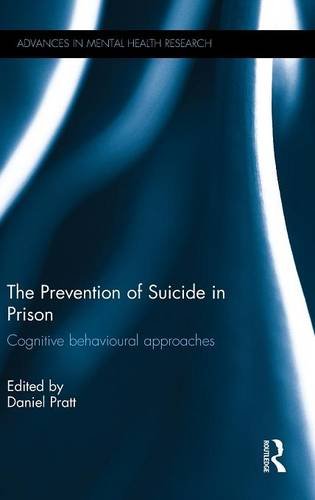

Most ebook files are in PDF format, so you can easily read them using various software such as Foxit Reader or directly on the Google Chrome browser.
Some ebook files are released by publishers in other formats such as .awz, .mobi, .epub, .fb2, etc. You may need to install specific software to read these formats on mobile/PC, such as Calibre.
Please read the tutorial at this link: https://ebookbell.com/faq
We offer FREE conversion to the popular formats you request; however, this may take some time. Therefore, right after payment, please email us, and we will try to provide the service as quickly as possible.
For some exceptional file formats or broken links (if any), please refrain from opening any disputes. Instead, email us first, and we will try to assist within a maximum of 6 hours.
EbookBell Team

5.0
110 reviewsSuicide is considered to be the leading cause of preventable death in prisons. While there is increasingly expansive literature examining the various risk factors associated with a likelihood of eventual prison suicide, so far this has struggled to lead to successful prevention programmes. An alternative approach is needed that seeks to understand, at the individual level, what leads a prisoner to contemplate ending their own life. This book describes how the authors developed and delivered evidence-based psychological interventions for suicide prevention in prison.
The authors present a compelling argument for a psychological approach to the prevention of prison suicide, drawing upon a cognitive behavioural perspective, with chapters investigating two novel psychological therapies: Cognitive Behavioural Suicide Prevention and Problem Solving Training. The methodology behind each study is presented alongside preliminary findings emerging from the evaluations, and detailed case studies are included as exemplars of the process and content of the therapies, as well as the individual and contextual challenges to be overcome. The book provides timely research into the development of a better understanding of why prisoners engage in suicide behaviour, and the preventive interventions showing the most promise for future investigation.
The Prevention of Suicide in Prison will be critical reading for clinical and forensic psychologists, psychological therapists, psychiatrists and other mental health staff working within a prison context, as well as postgraduates in training and researchers studying suicide in forensic settings.